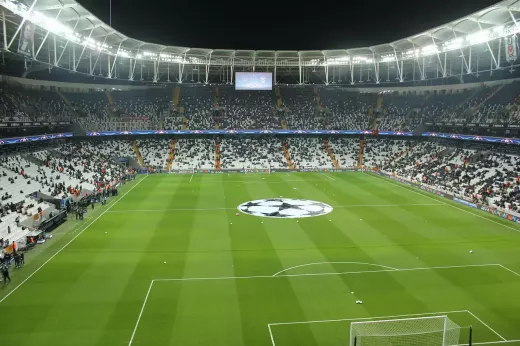The Impact of Player Transfers on Team Performance
Player transfers have a significant impact on team performance. When a team acquires a new player, they are hoping that the player will bring something new to the team and help them improve their performance. The success of a transfer depends on several factors, including the player's ability, the team's needs, and the player's fit with the team's style of play.
However, player transfers can also have a negative impact on team performance. If a team loses a key player, it can be challenging to replace them. The new player may not fit in with the team's style of play, or they may take time to adjust to their new surroundings. This can result in a period of poor performance for the team.
Overall, player transfers can have a significant impact on team performance, both positive and negative. It is up to the teams to make the right decisions when it comes to player transfers to ensure that they are improving their team's performance.
Most Impactful Player Transfers in Recent Years
There have been many impactful player transfers in the Categoria Primera A in recent years. One of the most significant transfers was the move of Miguel Borja from Cortulua to Atletico Nacional in 2016. Borja had an outstanding season with Cortulua, scoring 19 goals in 23 appearances. Atletico Nacional saw his potential and quickly moved to sign him. Borja went on to score 19 goals in 24 appearances for Atletico Nacional, helping them win the league title.
Another impactful transfer was the move of Juan Fernando Quintero from Pescara to Independiente Medellin in 2017. Quintero had struggled to make an impact in Europe, but he returned to Colombia and quickly became one of the league's best players. He helped Independiente Medellin win the league title in 2018 and was subsequently sold to River Plate in Argentina for a significant profit.
These are just two examples of the many impactful player transfers in the Categoria Primera A in recent years. It just goes to show how important it is for teams to make the right decisions when it comes to player transfers.
The Financial Aspect of Player Transfers
Player transfers are also an essential part of the financial aspect of football. Teams can make significant amounts of money by selling their players to other teams. Conversely, teams can also spend a lot of money on acquiring new players.
The financial aspect of player transfers can be complex, with many factors influencing the transfer fee. The player's ability, age, and contract status are just a few of the factors that can affect the transfer fee. Teams must carefully consider the financial implications of player transfers to ensure that they are making the right decisions for their club.
Overall, player transfers are a critical part of the financial aspect of football. Teams must consider the financial implications of player transfers to ensure that they are making the right decisions for their club.
The Effect of Player Transfers on Fan Loyalty
Player transfers can also have an impact on fan loyalty. When a team acquires a new player, it can generate excitement and enthusiasm among fans. However, if a team loses a key player, it can be challenging to maintain fan loyalty.
Fans can become disillusioned if they feel that the team is not making the right decisions when it comes to player transfers. It is up to the teams to communicate with their fans and explain their decision-making process when it comes to player transfers. This can help to maintain fan loyalty and keep supporters engaged with the team.
Overall, player transfers can have an impact on fan loyalty. Teams must carefully consider the impact of player transfers on their fans to ensure that they maintain their support.
Strategies for Managing Player Transfers Effectively
Managing player transfers effectively is essential for the success of any football team. Teams must have a clear strategy when it comes to player transfers to ensure that they are making the right decisions for their club. Here are some strategies for managing player transfers effectively:
1. Develop a clear transfer policy: Teams should have a clear transfer policy that outlines their approach to player transfers. This can help to ensure that all transfer decisions are made in line with the team's overall strategy.
2. Use data to inform transfer decisions: Data analysis can provide teams with valuable insights into potential transfer targets. Teams should use data to inform their transfer decisions to ensure that they are making the right choices.
3. Consider the team's style of play: Teams should consider their style of play when making transfer decisions. It is essential to acquire players who fit in with the team's style of play to ensure that they can make a positive impact on the team's performance.
4. Communicate with fans: Teams should communicate with their fans and explain their decision-making process when it comes to player transfers. This can help to maintain fan loyalty and keep supporters engaged with the team.
Overall, managing player transfers effectively is essential for the success of any football team. Teams must have a clear strategy when it comes to player transfers and use data to inform their decisions to ensure that they are making the right choices.
The Role of Agents in Player Transfers
Agents play a significant role in player transfers. They act as intermediaries between players and teams and negotiate transfer deals on behalf of their clients. Agents can help to ensure that their clients get the best possible deal when it comes to player transfers.
However, agents can also create problems when it comes to player transfers. They may demand high fees or make unreasonable demands, which can make it challenging for teams to complete transfer deals. Teams must carefully consider the role of agents in player transfers and ensure that they are working with reputable agents who have their clients' best interests at heart.
Overall, agents play a significant role in player transfers. Teams must carefully consider the role of agents in player transfers and ensure that they are working with reputable agents to ensure that they can make the best possible deals.
The Impact of COVID-19 on Player Transfers
The COVID-19 pandemic has had a significant impact on football, including player transfers. Many teams have had to adjust their transfer strategies due to financial constraints caused by the pandemic. This has led to a decrease in the number of high-profile transfers and an increase in loan deals.
The pandemic has also made it challenging for teams to complete transfer deals. Travel restrictions and quarantine requirements have made it difficult for teams to complete medicals and sign contracts. This has led to many transfer deals falling through, causing frustration for teams and players alike.
Overall, the COVID-19 pandemic has had a significant impact on player transfers. Teams must adjust their transfer strategies to account for the financial constraints caused by the pandemic and find new ways to complete transfer deals in a challenging environment.
Player Transfers and the Transfer Window
Player transfers are an essential part of the transfer window. The transfer window is a period during which teams can buy and sell players. The transfer window is open for a limited period, and teams must complete their transfer deals within this timeframe.
The transfer window can generate excitement and anticipation among fans, who are eager to see which players their team will acquire. It can also be a challenging time for teams, who must make important decisions about player transfers.
Overall, player transfers are a critical part of the transfer window. It is a time when teams can improve their squads and make strategic decisions that can have a significant impact on their performance.








